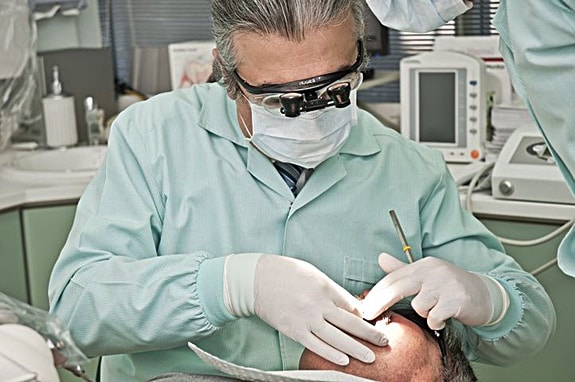When most people think of the healthcare profession, working with a lot of different people usually comes to mind. In many cases, you have to deal with patients and other team members on a regular basis. So, are there any medical careers for introverts?
Introverts are people who prefer working alone. Whether you’re shy, or you work better when focusing on your tasks without the distraction of others, everyone has their reason for being more introverted than others.
But, are there medical specialties for introverts? The healthcare field is so fast-paced and focused on people that you can be forgiven for thinking that it’s not the career for you if you’re introverted. However, there are several behind-the-scenes jobs that could be ideal.
These positions allow you to assist people and make a huge difference in healthcare, without having to work with too many people directly. Determined introverts can find a well-paid position in the healthcare field. In fact, many end up becoming doctors and nurses. However, if you want a position that doesn’t require you to see a steady stream of people each day, you do have options!
What Are Good Healthcare Jobs for Introverted People?
If you’ve always had an interest in health, there are jobs available that don’t deal with customers. Introverts can use the skills that they’ve developed to work in just about any type of career. However, if you’re looking for a position that fits your personality right now, there are several medical jobs to look at more closely.
This guide will focus on the best medical careers for introverts. We will cover what your responsibilities will include in each career path, and how you can still make a difference in people’s lives without having to interact with strangers on a regular basis.
We will also offer tips on how to be more comfortable in any medical career. If you’ve always dreamed of being a doctor or nurse, but don’t think you can because of your personality type, you can use the advice found here to become far more comfortable.
1) Medical Lab Technician
Medical lab technicians have a crucial job. They diagnose patients based on tests performed on blood, tissue and other bodily fluids. They also assist physicians in treating any health conditions that they discover.
Being a lab tech is a great way to help patients without having to work with them face-to-face. They work in doctor’s offices or hospitals, but these places can be surprisingly quiet compared to other areas in a medical facility.
A job as a lab technician is great for shy, quiet people because it requires minimal human interaction. You may have to work under a supervisor or lab manager. However, most of your work will be done independently each day. You’ll receive different samples, and will then be able to test them on your own using specialized equipment. While certain timelines need to be followed, working in a lab is often far less stressful than being on the floor of a hospital as you can work at your own pace.

This is considered a behind-the-scenes job, but one that carries a substantial impact, and can save a patient’s life.
Becoming a lab technician requires only an Associate’s Degree. According to the Bureau of Labor Statistics, this particular position is expected to see continued growth in popularity through the year 2022.
On average, a lab tech makes about $41,585 each year.
2) Radiologists
Radiologists use specialized equipment to take X-Rays, ultrasounds, MRIs, and more. While they do work directly with patients to take these scans, the time spent with the patient is limited. Plus, there is little talking and interacting involved.
In fact, part of the job is making sure the patient stays still, so you can get an accurate scan of what you need. Most verbal interaction is always the same. You simply explain the risks and safety procedures for the scan that you’re about to perform.
Once the scan is taken, it is then a radiologist’s job to interpret what it says. They will record data and report their findings to the patient directly or their doctor.
This is a great job for someone who doesn’t mind being around people but would prefer not to talk too much. A career in radiology isn’t about making light conversation, and most of the work you do will be quiet and follow a set routine.
Most people who enter radiology will have at least a Bachelor’s Degree. However, there are some areas of the profession that will accept an Associate’s Degree. Of course, the level of education will reflect your salary. The yearly average salary for a radiologist is around $37,000.
3) Medical Coder
As another critical behind-the-scenes role, a medical coder never works directly with patients. It’s a rarity that you would even have to talk directly with doctors, nurses, or other staff. Instead, a coder receives patients’ medical records and specific notes from doctors regarding their visit(s). The coder then assigns specific medical codes to the services the patient was given.
These codes are used as a language for healthcare providers and insurance companies. A coder bridges the gap between a medical facility and insurance reimbursement. Insurance companies don’t take the time to look at each patient’s chart to determine their services and what type of reimbursement they should receive. So, a coder makes it easier for them by providing shorthand terminology that is easy to read and understand. Each code depicts a different service or procedure, so the insurance company knows how to deliver reimbursements.
While you don’t need to be social and outgoing to be a coder, you do need to have excellent organizational skills. Being able to pay close attention to detail is imperative. There are thousands of medical codes to understand and use correctly. The industry relies on the accuracy of coders to ensure patients are correctly charged for their services.
A specialized medical coding certificate is required for this position. Many programs can be completed online in less than a year. However, some facilities will give preference to candidates with an Associate’s Degree.
The median yearly salary for a medical coder is $45,100.
4) Medical Equipment Repair
If you’ve always been good at fixing and troubleshooting, and want to avoid almost all patient interaction, becoming a medical equipment repairer could be the perfect position for you. Medical equipment repairers are considered to be specialists in fixing any problems with the technological equipment used in hospitals, doctor’s offices, and more.

Not only do they fix existing problems, but they perform routine maintenance on equipment and machines. Because of the advancements in technology and the sophistication of these devices, attention to detail and a willingness to continue your education is required.
A minimum of an Associate’s Degree in biomedical technology, or engineering is needed for this position. It’s essential to stay up to date on the latest skills and troubleshooting techniques. You will need to regularly work with software upgrades and glitches, as well as perform physical repairs on machines.
The machines you work with on a daily basis can help to diagnose conditions and save lives. So, your role is a huge part of the healthcare field and you’ll never have to work directly with patients.
The average yearly salary for a medical equipment repairer is $44,180.
5) Health Information Technician
A health information technician doesn’t require direct patient contact. You’ll instead be working with medical records. Because of increasing advancements in technology, this career path is becoming increasingly popular and is in high demand.
Health information technicians keep medical records organized and ensure their accuracy and security. There are also specializations for people interested in something more defined. A health information tech can expand their work into certain areas, like coding, or monitoring registrars for specific illnesses.
You need strong organizational skills and a knack for technology and data. While you won’t work directly with patients, you will have to work with other medical personnel to ensure information is being recorded correctly. However, most of the work is done independently.
Another ‘perk’ of this career path is that it carries standard hours. Many healthcare jobs involve working around the clock shifts. Most health information technicians only work weekdays and have a 40-hour work week.
An Associate’s Degree is needed for this position. However, many employers will favor those who have taken the extra step to become fully certified as a Registered Health Information Technician (RHIT).
The annual average salary for an RHIT is about $31,000. Depending on your level of education, you may be able to earn over $50,000 a year in this position.
6) Medical Transcriptionist
Transcriptionists never work with patients and rarely with other healthcare team members. Instead, they focus on recordings given by different medical professionals. The job of a medical transcriptionist is to listen to these recordings and type them into written reports.
They can also transcribe reports, or report potential medical emergencies to doctors if they feel something they are transcribing requires it. Most of the time, this is due to mistakes or inaccuracies within the initial report.
[su_list icon=”icon: check-circle”]
Jobs are readily available in:
- Hospitals
- Clinics
- Private practices
- Full-time transcription companies
Many choose to do transcription on a freelance basis so that they can work from home. Businesses or hospitals will then hire a transcriptionist as needed for their services when the need arises.
While a particular degree isn’t required to become a medical transcriptionist, it could improve your chances of securing employment. This is a career that is in high demand, but employers may give preference to those with post-secondary education in the field.
The average yearly salary for a transcriptionist is about $30,000.
7) Administrative Assistant
Being a medical administrative assistant isn’t that much different from the job description you might find in any office setting. Instead of working with patients at a one-on-one level, you will instead be scheduling their appointments, completing insurance forms, keeping track of records, etc. There is minimal human interaction involved on a daily basis.
The interactions you do have with patients and other staff members will be short. You may have to directly talk with a patient after their appointment to schedule another one, make phone calls to remind people of upcoming visits, etc. There is no long-term interaction.
This is an exceptionally quiet job if you decide to be a medical administrative assistant for a small private practice. In these facilities, it’s not uncommon for only one assistant to be working at a time, so you can enjoy your alone time while getting your work done.
In most cases, an Associate’s Degree is required for this position. Most facilities will give preference to those who have previous experience.
The median yearly salary for a medical administrative assistant is $34,000.
8) Medical Equipment Preparer
Much like a medical equipment repair person, an equipment preparer does a lot of good work without ever really being ‘known.’ It is their job to get equipment and machinery ready and ensure it is working correctly before a procedure.

The preparer will make sure all equipment is functioning the way it should and that it is sterile before an exam or surgical procedure. This needs to be done well in advance before the doctor(s) or the patient arrives. You can have peace of mind from knowing that you’re making lives easier and keeping operations running smoothly, without having to have much interaction with anyone.
Currently, there are no formal training programs available for medical equipment preparers. However, it’s a job that requires close attention to detail and individual skills. Experience with mechanical operations, technology, and an inclination in working with tools are all helpful characteristics. Some mechanics training may also be useful, especially in setting you apart from other possible job applicants.
On average, a medical equipment preparer will make about $30,400 each year.
9) Health Informatics
Health informatics focus on how to make the healthcare industry better, on both smaller and larger scales. They don’t work with patients. Rather, they gather data and analyze it by working in the background. The information and analytics they put together are then used to help improve the healthcare system.
With collected data given to nurses, doctors, and other healthcare personnel, those professionals can then have guides for better patient care and overall public health decisions.
It is vital for healthcare informatics to be extremely observant, and pay close attention to details. Strong analytical skills are also needed to do the job successfully.
There are many employment opportunities for this particular career path, including:
- Hospitals
- Clinics
- Academic facilities
- Government
- Pharmaceutical companies
While there is typically no degree required for this job, you can obtain one for a more lucrative position. Most healthcare informatics make about $62,100 each year. If you’re interested in healthcare, but you are typically driven by data, it’s an excellent way to capture both in one job.
[/su_list]
10) Nutritionist
While a nutritionist does have to interact with patients, it is usually on a one-on-one basis, and most of the work is done independently. As a nutritionist, you’ll need to develop a specific diet plan based on the patient’s individual needs. This will require you to discuss the plans with the patient, and perhaps talk with their doctor about their special dietary needs. But, putting a plan together and working with the patient on updates and progress can usually be done through email, phone conversations, etc.
Nutritionists can be hired by larger hospitals or specialized facilities, or operate independently.
Becoming a certified nutritionist requires a Bachelor’s Degree and an accredited certification from an agency or institution. Continuing education in the field is also often necessary.
On average, a licensed dietician or nutritionist makes about $51,000 each year.

How Can an Introvert Thrive in the Workplace?
If the idea of working with patients and other team members in healthcare is daunting to you, consider one of the jobs listed above. However, with almost any healthcare career choice, there are several tips and tricks you can use to navigate your environment and still feel productive.
- Seek out spaces for solitude. In a busy hospital environment, this may not always seem possible, but even giving yourself a few minutes of alone time here and there can be beneficial. If you can find a space to do some of your work quietly, and without distraction, go to it as much as possible. This can be especially beneficial if finding a quiet spot to do your work allows you to be more productive.
- Ask for flexibility. If your particular job allows for it, talk to your boss or supervisor about your needs. If you have to be in direct contact with patients throughout the day, ask for a bit of quiet time in between so you can focus on other aspects of your work. These short bursts of tranquility can make a big difference.
- Be a leader. If you’re a naturally timid or shy person, you may not think you have the ability to lead. However, many studies have suggested that introverts make the best leaders. They are often observant, willing to listen to the ideas of others, and they can implement those ideas successfully when given a chance. Introverts are usually more willing to ‘speak up’ for those who have ideas, but may otherwise not get to share them. It may take some time to step out of your comfort zone enough to be a leader, but don’t ignore the idea if it ever comes up.
- Give yourself plenty of time to rest. For introverts, feeling refreshed and renewed is important. If you don’t take time for yourself throughout the day, it could lead to unnecessary stress and anxiety. By taking occasional pauses, you’re likely to have higher productivity and feel better about your job.
- Making checking in a part of your routine. In a perfect world, it’s likely you would feel most comfortable focusing on your work alone all day and limiting interaction. However, that’s not always possible. But, you can take better control of these interactions by making a point to check in with your co-workers each day, as part of a routine. Maybe you do it at a certain time of day or maybe talk a few minutes longer to someone different each day.
Even for shy people, socialization is essential. Plus, if you feel as though you have stronger control over it, you’re more likely to become more comfortable with it. It may eventually become a more natural personality trait for you, due to going outside of your comfort zone little by little.
Is a Medical Career Possible for Shy People?
The healthcare industry is one of the fastest-growing areas of career expansion in the country. Thanks to an aging population and advancements in technology, there are thousands of different healthcare jobs that currently need to be filled. The demand is high, and there are jobs for every different personality type.
If you prefer working on your own, you don’t have to give up on the idea of a medical career. Whether you want to interact with patients or not, there is a job that will fit your personality type. This will make you feel comfortable and allow you to be productive and successful in what you do.
Keep in mind that introversion is only one part of your personality. Many other parts will undoubtedly be beneficial in a medical career. Plus, by putting yourself into a job situation where you can still experience limited interaction may help you become more comfortable and accepting around outgoing people. It may also help to boost your socialization skills.
Any of the jobs listed in this article would be perfect for someone who prefers working on their own. Many of them don’t even require much training so that you can get started soon. Don’t give up on the idea of working in healthcare based on a personality trait. Introverted people can be hugely successful in the medical field, and there are a variety of career options for people aged over 40.






